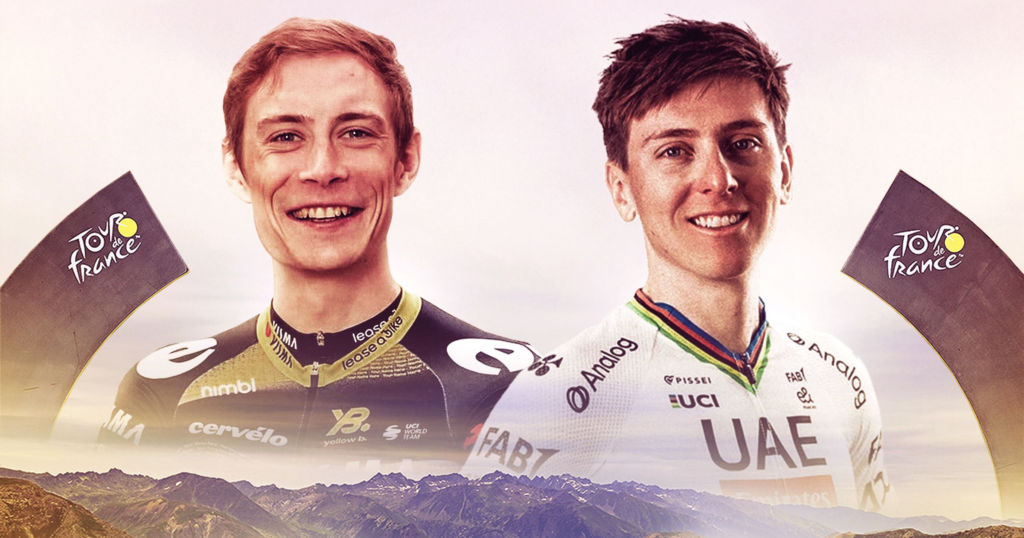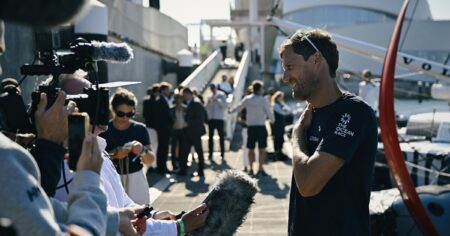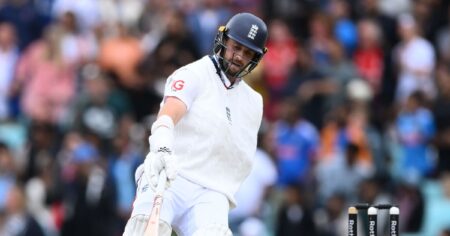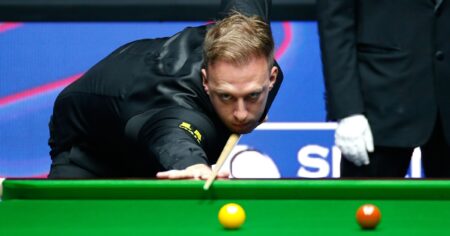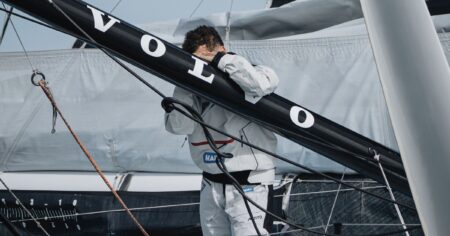Rivalries are the lifeblood of sports, providing the fervor and intrigue that energizes fans and athletes alike. One of the most captivating rivalries in modern cycling is undoubtedly between Jonas Vingegaard and Tadej Pogacar. As they gear up for the fifth chapter of their head-to-head at this year’s Tour de France, their encounters promise to be a spectacle within the unforgiving landscape of the French mountains. The Tour de France, a grueling test of endurance and strategy, has long been the sport’s pinnacle, where champions are crowned and dreams are shattered.
In an insightful interview with TNT Sports, Vingegaard’s peer, the recently retired Romain Bardet, provided a unique perspective on the upcoming clash. Having previously secured a podium finish at the Tour and donned the coveted yellow jersey, Bardet is intimately acquainted with the pressures and strategies involved in such a monumental race. He offered a candid evaluation of the current season and the ongoing contest between Vingegaard and Pogacar. According to Bardet, Pogacar’s continued dominance in the sport poses a formidable challenge for his rival Vingegaard and the Team Jumbo-Visma crew. Bardet remarked, “From what we have seen so far this season – it’s the second year in a row, an amazing one that Pogacar is having – maybe the odds are a bit against Vingegaard and Visma.”
Despite the uphill battle facing Vingegaard, Bardet firmly believes that he possesses the capability to thwart Pogacar’s winning streak. He pointed to Team Jumbo-Visma’s strategic prowess, evidenced by Simon Yates’ triumph in the Giro d’Italia, highlighting their ability to orchestrate master plans that can dramatically alter the course of a race. Bardet expressed his conviction, noting that the team will likely identify specific stages where they believe they can challenge Pogacar’s supremacy. Bardet’s insights reflect a deep understanding of the mental and physical intricacies at play, especially in a race as complex and tactically demanding as the Tour de France.
As the dialogue continued, Bardet reflected on the growth and adaptation of Pogacar in the previous Tours, emphasizing that his ability to learn from past shortcomings—specifically on the daunting Col de la Loze—could potentially influence the dynamics of this year’s competition. The Col de la Loze serves as a critical stage, often determining the overall standings, and Bardet underscored that Pogacar’s desire to reclaim dominance could fuel his performance. Furthermore, Bardet acknowledged recent performances, such as those in the Dauphine, as indications of the climbers’ current form, shedding light on the athletes’ preparation in the lead-up to the Tour.
However, Bardet cautioned that the early stages of the Tour might present unique challenges for Pogacar, particularly with the weather conditions and the team’s organizational strengths. The North of France can be notably unpredictable, and Bardet noted that Vingegaard’s squad has historically excelled at anticipating such variables. The strategic ability of Team Jumbo-Visma to safeguard their leader amidst the uncertainties of racing, particularly in terms of protecting against adverse conditions, could prove decisive.
In addition to on-bike strategies and rivalries, Bardet emphasized the psychological dynamics inherent to the Tour de France. He recalled last year’s verbal tussles, particularly Remco Evenepoel’s controversial remarks about Vingegaard’s racing mentality. This year, Bardet anticipates more mind games, asserting that psychological pressure plays as significant a role as physical prowess in racing. “Some small sentences can go so big,” he noted, highlighting how misquoted statements can amplify tensions within the peloton.
Bardet suggests that the mental strain of competitive cycling, coupled with the stressful environment of the Tour, can lead to emotionally charged reactions from riders, creating a rich narrative around the race. These unforeseen circumstances can complicate not just the racing itself, but also the interpersonal dynamics between athletes. Acknowledging that such tensions are “part of the race,” he asserted that they contribute to the compelling stories that surround the Tour de France, reinforcing its legacy as not just a test of speed and stamina, but a battleground of wills.
As this year’s Tour de France unfolds, the anticipation surrounding the contest between Vingegaard and Pogacar will undoubtedly keep fans riveted, elevating the event to new heights of excitement and intrigue.






